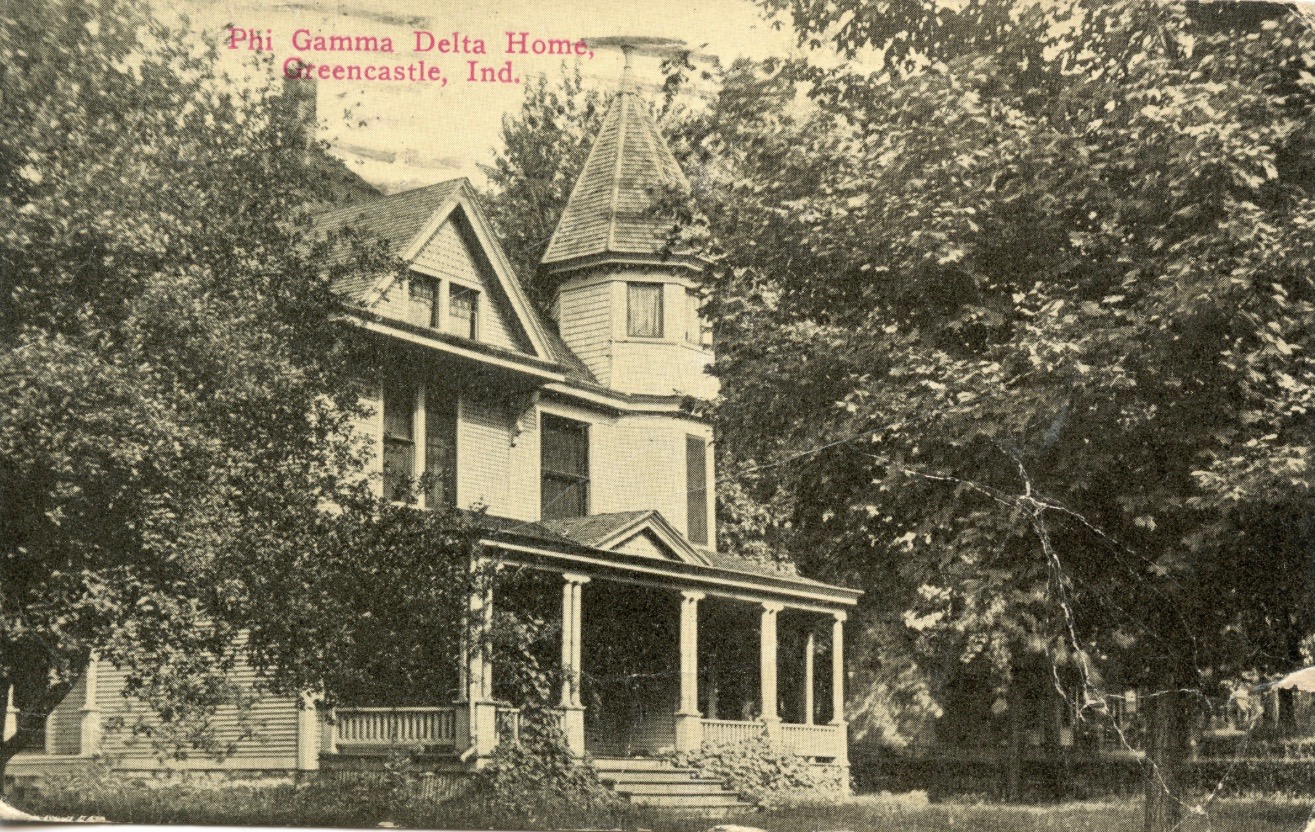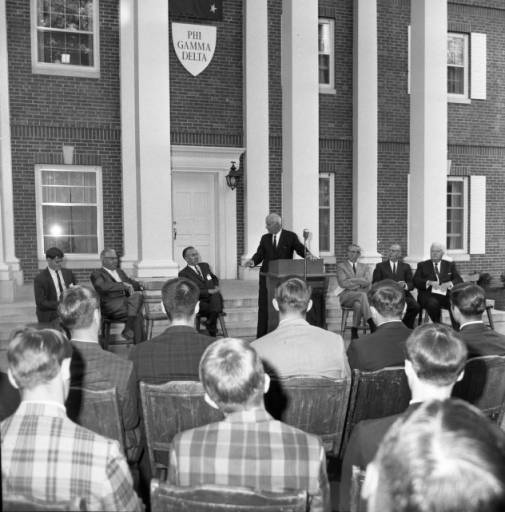Lambda History
The Lambda Chapter of Phi Gamma Delta was founded in June 1856 in Greencastle, Indiana, at Indiana Asbury College, known today as DePauw University. It holds the distinction of being the longest continuously running chapter of Phi Gamma Delta, and the second longest continuously running Greek fraternity chapter at DePauw University.
The chapter was first founded when William Abney, a member of Phi Gamma Delta from the Iota chapter at Centre College in Kentucky, transferred to Indiana Asbury College. Abney, wanting to continue his work in Phi Gamma Delta, gathered up an initial group of interested students and petitioned for a charter. The Alpha Chapter accepted the petition, and Abney was appointed the installing officer. In May 1856, he formally installed the Lambda Chapter at Indiana Asbury College, making it the first chapter in the state of Indiana.




During the early years of the chapter and the fraternity as a whole, the Lambda Chapter made many contributions to the traditions and leadership of the fraternity. Such contributions include the selection of Royal Purple as the official color of the fraternity in 1873, the modern day style of wearing the badge, and the selection of a Lambda FIJI as the first Archon President of the fraternity in 1898.
One of the more well-known historical events of the Lambda Chapter was its relation to the founding of the first college sorority, Kappa Alpha Theta. During the late 1960s, DePauw University first began admitting women. Betty Locke, one of the first four women to attend the university, became good friends with many of the members of the Lambda Chapter. Members of the chapter eventually asked if Locke was willing to wear their badge, which she said she would only accept if she were initiated into the fraternity. After deliberating, the Lambda Chapter decided that they preferred to remain an all-male organization, but presented Locke with a silver basket as a token of friendship. Locke went on to found Kappa Alpha Theta, basing many of the sorority’s symbols, such as their badge, on Phi Gamma Delta’s. The new sorority built their chapter house next door to the Lambda Chapter, where they remain to this day.
The early- and mid-1900s saw several challenges for the chapter, many of which came from the first and second world wars, drawing away many students at the time. Still, the Lambda Chapter endured. Once the major struggles had passed, the chapter began construction on the first portion of the house that the chapter currently resides in. A few years after the original portion was completed, a second wing was added to the house, completing the structure that stands today.
In recent years, specifically in the early 2000s, the chapter went through a revitalization process to ensure that it remained as a prime example of the best that a fraternity can offer. Since this revitalization, the chapter has grown to its current size, bringing into its ranks members of high academic achievement, great leadership abilities, and high ambitions. This is where we stand today, always working to continue the rich legacy that Lambda enjoys, and ever searching for those who are capable of carrying that legacy far into the future.
